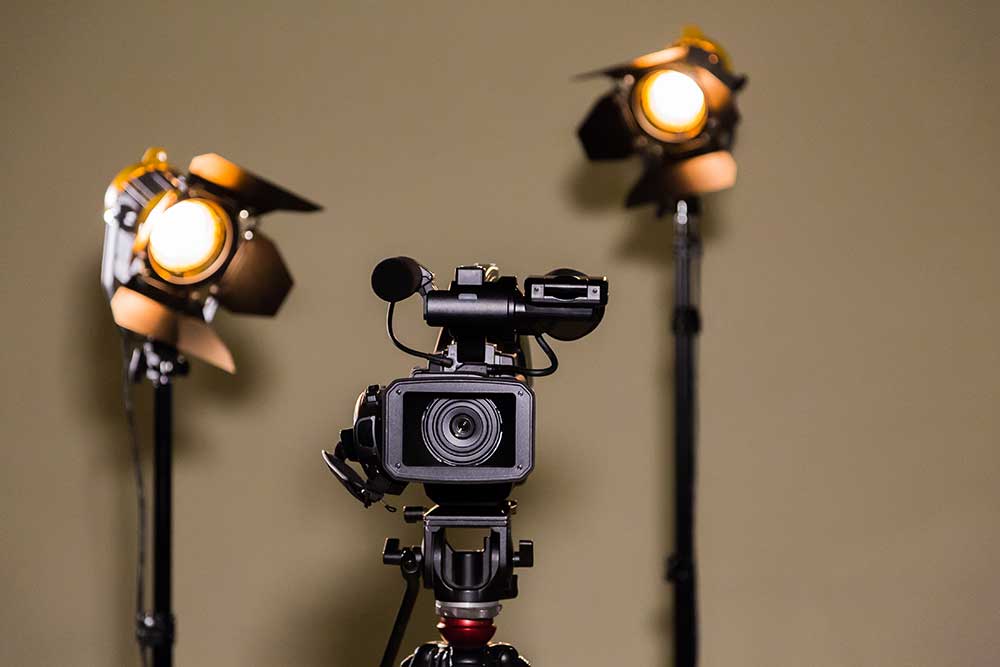Trusted Legal Videography for Secure Case Support.
Trusted Legal Videography for Secure Case Support.
Blog Article
The Function of Legal Videography in Depositions and Tests
Lawful videography has arised as a vital device in both depositions and trials, supplying a diverse method to documenting witness statements. As lawful experts significantly recognize its value, it motivates a deeper exam of how these aesthetic documents can affect juror perceptions and trial outcomes.

Importance of Lawful Videography
Lawful videography plays a pivotal role in the paperwork and presentation of depositions and tests. This specialized area integrates technical abilities with legal knowledge to produce a trustworthy document of process that can considerably influence instance results. The appearance of lawful videography enhances the understanding of witness testimony, enabling jurors and judges to observe not just the spoken words but also the demeanor, feelings, and body language of the witnesses.
Additionally, lawful videography supplies an objective account of occasions, minimizing the possibility for misconception that can accompany written records alone. This aesthetic documentation acts as an important device throughout trial discussions, helping with a more clear and even more convincing narrative for both plaintiffs and defendants. Additionally, the capability to replay video segments during court procedures allows lawful teams to emphasize bottom lines, reinforcing their disagreements successfully.
The significance of lawful videography extends past the court room; it likewise plays an important role in preserving proof for future reference, whether for charms or additional lawful activity. Its combination into the lawful process is essential for making sure a reasonable and precise depiction of the realities, inevitably adding to the search of justice.

Process of Legal Videography
While recording the nuances of depositions and trials, the procedure of legal videography includes numerous vital actions that ensure high-grade, exact recordings. A professional legal videographer prepares by examining the case products and comprehending the details needs of the deposition or trial. This preparation consists of familiarizing themselves with the individuals and the context, which assists in recording important details.
On the day of the recording, the videographer sets up the essential devices, which normally consists of high-def electronic cameras, microphones, and appropriate illumination. Making certain ideal angles and audio quality is critical, as it straight impacts the efficiency of the recording. The videographer communicates with lawyers and participants to develop procedures, making sure that everyone comprehends the recording procedure.
Throughout the deposition or trial, the videographer thoroughly videotapes the proceedings, paying close interest to both verbal and non-verbal cues. This includes recording the demeanor and responses of witnesses and attorneys. After the session wraps up, the videographer may modify the video for clearness and conformity with lawful criteria, generating a last product that accurately shows the procedures for future reference and use in lawful contexts.
Advantages in Depositions
The unification of videography in depositions offers many benefits that boost the general procedure of gathering evidence. One main advantage is the capability to catch witness statements with aesthetic and acoustic fidelity, offering a much more accurate depiction of the witness's temperament, tone, and body language. This multidimensional technique allows attorneys and courts to analyze integrity better than standard written transcripts alone.
In addition, videographed depositions act as a powerful device for maintaining testimony. Must a witness ended up being unavailable for test, their videotaped deposition can be played in court, ensuring that their proof continues to be available and pertinent. This aspect dramatically lowers the threat of shedding critical information that might influence situation end results.

Last but not least, videography boosts the general expertise of the deposition procedure, instilling self-confidence in clients pertaining to the thoroughness of their lawful representation (legal videography). By leveraging innovation, lawyers can dramatically boost the performance of depositions
Influence on Tests
In several trials, the integration of videography can substantially affect the presentation of proof and the court's perception. Lawful videography records witness statements and crucial proof in a vibrant style, enabling jurors to involve with the material on multiple levels. This visual element improves the narration aspect of a trial, offering context and emotional resonance that conventional text-based proof might do not have.
In addition, video recordings can function as effective tools for impeachment her response during interrogation. When disparities arise between a witness's prior statements and their court room testimony, video clip evidence offers an objective referral that can persuade jurors' point of views. This immediacy and clarity can boost the integrity of an event's narrative while all at why not check here once weakening opposing arguments.

Future Trends in Legal Videography
As we look towards the future of lawful videography, a number of emerging fads guarantee to improve its role within the courtroom. One substantial fad is the integration of fabricated intelligence (AI) in video evaluation and editing and enhancing. AI can enhance the process of recognizing crucial moments in tape-recorded depositions, enabling attorneys to quickly access pertinent material, thereby improving performance in instance preparation.
Furthermore, the increase of digital reality (VIRTUAL REALITY) and increased truth (AR) technologies is anticipated to change just how jurors experience proof. legal videography. By immersing jurors in a simulated setting, these modern technologies can supply a much more extensive understanding of intricate circumstances, resulting in even more educated considerations
In addition, the enhancing demand for remote depositions, sped up by the COVID-19 pandemic, will likely proceed. Lawful videographers will require to adapt to brand-new software application and systems to ensure premium recordings in virtual setups.
Lastly, the expanding focus on data security will certainly necessitate stricter methods for saving and sharing video proof. As the lawful landscape advances, lawful videographers should stay abreast of go these patterns to maintain their importance and efficiency in the judicial process.
Conclusion
In recap, legal videography serves a vital feature in the judicial process, enhancing the honesty of depositions and trials. As innovation proceeds to develop, legal videography is positioned to further transform its role within the lawful landscape.
Report this page